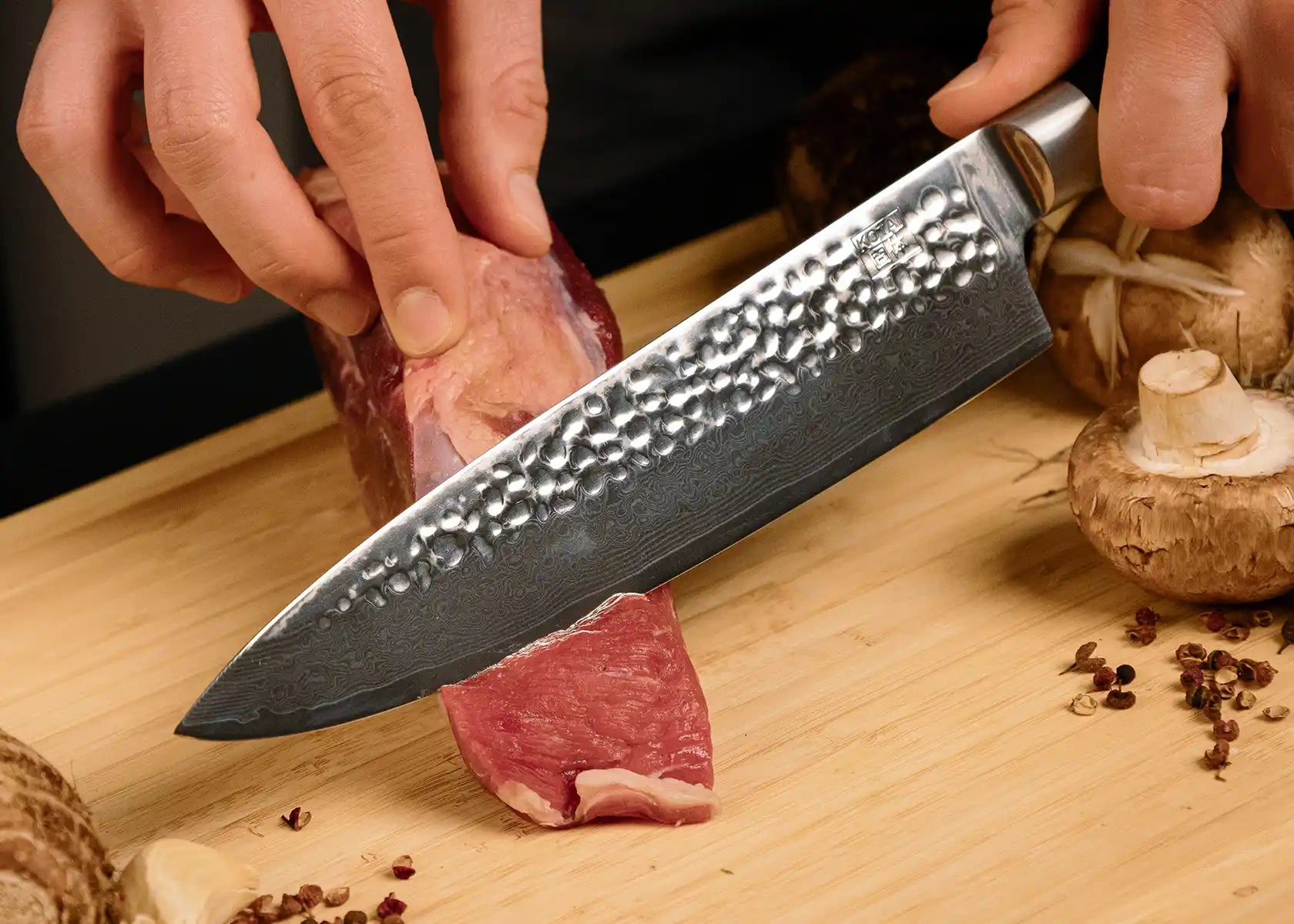For many kitchen professionals, the Damascus steel kitchen knife is more than just a cutting tool; it is a reflection of culinary artistry and a testament to high craftsmanship. This extraordinary knife, with its intricate patterns and superior edge retention, has captivated chefs and cooking enthusiasts alike. But what makes the Damascus steel kitchen knife so special, and why should it be the centerpiece of your kitchen arsenal?

Understanding the Craftsmanship of Damascus Steel
The magic of Damascus steel lies in its method of production, a meticulous process that has been honed over centuries. The hallmark of a Damascus steel knife is its wavy, watery pattern, which is achieved through the repeated folding and forging of high-carbon and low-carbon steel. This technique not only creates the famous patterns but also fortifies the blade, offering unparalleled strength and sharpness.
For an in-depth look at the historical roots and development of Damascus steel, you can explore articles such as Blade Magazine's exploration into who first crafted these legendary blades.
Why Kitchen Professionals Swear by Damascus Steel Knives
Here are some compelling reasons why a Damascus steel kitchen knife is considered indispensable by kitchen professionals:
Dazzling Durability
Thanks to its unique forging process, the Damascus steel knife stands out for its durability. The layered construction blends hard steels edge retention with the softer steels flexibility, making it resistant to chipping and breaking. This prolonged lifespan means that chefs can rely on their blades for years, maintaining high performance throughout their culinary creations.
Supreme Sharpness
The sharpness of a Damascus steel knife is legendary. After being honed, it holds an edge longer than most other knives, allowing for cleaner, more delicate cuts. This is crucial when precision is necessary, such as when filleting fish or finely slicing vegetables. Those interested in detailed slicing techniques might find resources like the guide on Damascus kitchen knives helpful.
Aesthetically Appealing
Beyond its practical benefits, the Damascus steel knife is a visual masterpiece. The intricate and unique pattern on each blade makes it a conversation starter, adding an element of elegance to any professional kitchen environment.
Maintaining Your Damascus Steel Knife
Maintaining the beauty and sharpness of a Damascus steel knife requires regular care. After each use, it's critical to clean and dry the knife thoroughly to prevent rust and staining. Occasional sharpening and honing will keep the edge in peak condition. For more detailed care instructions, the comprehensive resources available at HowStuffWorks can be invaluable.
Choosing the Best Damascus Steel Kitchen Knife
When selecting a Damascus steel knife, consider factors such as blade length, handle comfort, and overall balance. Personal preference and intended use will guide the decision, ensuring that the tool perfectly complements your culinary style. For those pondering the best knife for their kitchen, exploring articles on specific brands, like Kershaw or Buck, can provide useful insights.

Conclusion: Elevate Your Cooking Game
The Damascus steel kitchen knife is more than an investment in kitchenware; it is an investment in quality, artistry, and performance. Whether you are a seasoned professional or an aspiring chef, owning a Damascus knife can transform your culinary experience and elevate your creations to new heights.
FAQs About Damascus Steel Kitchen Knives
Q: Why are Damascus steel knives so expensive?
A: The cost involves the intricate forging process, material quality, and the unique aesthetic patterns that are part of the blade-making tradition.
Q: How can I tell if a Damascus steel knife is authentic?
A: Authentic Damascus blades have continuous patterns that run throughout the blade, typically visible around the edge, and often come with a certificate of authenticity.
Q: Do Damascus steel knives require special care?
A: Yes, proper maintenance involves regular cleaning, drying after use, and careful sharpening or honing to preserve the blade's integrity and appearance.
This article contains affiliate links. We may earn a commission at no extra cost to you.


























